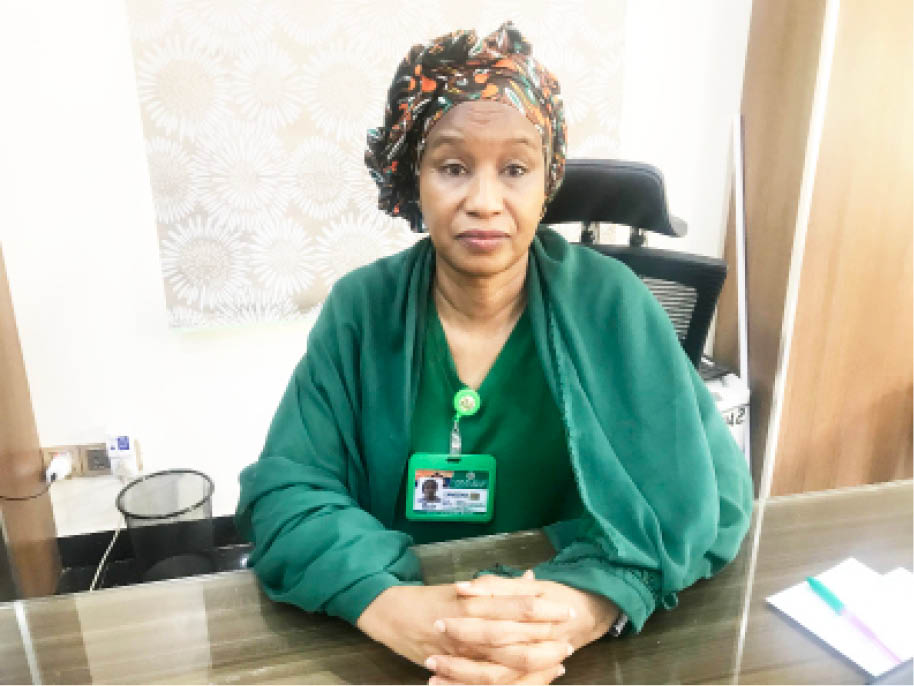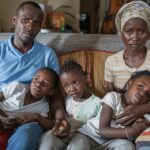In keeping with the theme of this year’s World Health Day, Kaduna State Commissioner of Health, Dr. Amina Mohammed Baloni, gives insight into the state’s effort at eliminating issues hindering equitable and quality health care for all, insisting that no sick person should die just because they are poor, or because they cannot access the health services they need.
How would you relate the theme for this year’s World Health Day to the situation in Kaduna State, in ensuring that everyone has access to equal, quality health services?
The theme for this year’s World Health Day which is ‘Building a Fairer, Healthier World’, highlights the right to health for all people; access to health services where they need it, when they need it irrespective of economic and social conditions. Here in Kaduna State, we have tried to ensure equitable access to health through policies and programmes.
There are over 1,000 health facilities scattered across the state with each ward having at least one Primary Healthcare Centre upgraded and equipped to enhance geographical access. In addition to general and rural hospitals in every LGA, there is a state-owned institution, Barau Dikko Teaching Hospital, providing tertiary care.
Kaduna is also lucky to have five specialist tertiary institutions such as the National Eye Centre, National Ear Care Centre, Ahmadu Bello University Teaching Hospital, 44 Army Reference Hospital and Air Force Medical Centre. These facilities provide care to the citizens of Kaduna and where we do not have facilities, communities are provided services through outreaches with an integrated package of preventive and curative services especially in hard to reach and underserved areas.
Public health awareness campaigns for diseases such as TB, Malaria, non-communicable diseases like hypertension and diabetes, malnutrition as well as mounting immunization campaigns to ensure infants and children are protected from vaccine-preventable diseases are also carried out regularly.
No one should get sick and die just because they are poor, or because they cannot access the health services they need. To this end, the state government has a health insurance scheme that aims to protect citizens from catastrophic expenditure. It has earmarked 1% of the consolidated revenue fund to cover vulnerable populations like the poor and elderly, this ensures citizens can access care in an equitable manner.
In addition, we have the Free Maternal and Child Services for pregnant women and children under five years. These are some of the measures taken to realize the citizens’ right to health in an equitable manner. Good health is also clearly determined by other basic human rights, including access to safe drinking water and sanitation, nutritious foods, adequate housing, education and safe working conditions.
The government is also working on those social determinants of health to improve the health and wellbeing of its citizens.
What major health iniquities would you say are disrupting equal access to health care in the state and how do you plan to eliminate them?
Some of the inequities that disrupt access to health include gender issues. Females are more likely to have less access to health services; cultural practices also make women more vulnerable to health challenges such as harmful birth practices, the need to obtain permission before accessing care; lack of economic power in women also impacts access to care.
Another is the rural-urban divide; health facilities tend to be more available in the urban than in rural areas. The government through its revitalization of the primary health care system and its strategy of providing one PHC centre in every ward, known as the Ward Focal PHC, is addressing the unequal access to care by rural dwellers. Additional PHC clinics and general or rural hospitals in all LGAs also increase access.
Our minimum service package, which defines the minimum care to be provided at every level of care, has been developed and is being implemented. Another source of inequity is poverty. There is a vicious circle that operates between ill health and poverty. Poor people cannot afford services and this, in turn, exacerbates ill health; what little income poor people have is spent to get services leading to deeper poverty.
The state through its social health insurance scheme and free maternal and child health programmes also aim to ensure that the poor and vulnerable have access to health care. We are also providing services to target groups that may face stigma or societal pressures such as those living with HIV, TB, mental health issues and so on. We are working to implement adolescent-friendly health programmes tailored to that age group who may not readily access health care due to their peculiar circumstance, and to reduce stigma and discrimination for all groups accessing care.
There is still a long way to go until everyone – no matter who they are, where they live, or how much money they have – have access to these basic human rights but we are working hard to reduce the inequities, leaving no one behind in keeping with the central principle of the 2030 Agenda for Sustainable Development.
We must all work together to combat inequities and discriminatory practices so that everyone can enjoy the benefits of good health, no matter the age, sex, race, religion, health status, disability or gender.
Would you say COVID-19 has further widened the gap for equal access to health care between those in the city and the hinterland?
Since its emergence late in 2019, the coronavirus pandemic has triggered what is considered the worst public health crisis in a century, with outbreaks spreading to virtually every corner of the globe: first, between interconnected metropolises, then from the urban to the rural areas. Here in Kaduna, we have recorded infections in all 23 LGAs. We have seen more cases in the urban LGAs with Kaduna North, Chikun, Kaduna South, Zaria, Sabongari and Igabi having the highest numbers.
One can argue that they are also more densely populated and since this is an infection that is spread by large gatherings and close contact and as entry points for COVID-19, cities are a critical line of defence in responding to the pandemic but rural areas have also reported cases with the dwellers more likely to ignore public health measures and feel stigmatized therefore not seeking care.
Service disruptions because of the lockdown from the inability to travel to health facilities for care, reduction of routine services and outreaches have led to inequities in access but the service continuity plan has helped to reduce this. COVID-19 has disproportionate health impacts on socially vulnerable populations that mirror longstanding disparities in our society, some of which are worsened by the pandemic.
Families of low-income residents are experiencing higher economic pressures. Such families depended on daily income jobs which were curtailed by lockdown measures. With loss of jobs and income, there is greater food insecurity especially in the urban areas, and less impact in the rural areas due to farming activities. These will certainly decrease access to health due to financial reasons and increase the impacts of ill health.
Targeted awareness campaigns on the availability of services and distribution of palliatives helped to protect the vulnerable. There was also a disturbing increase in cases of gender-based violence and mental health challenges as a result of the pandemic, this was noticed more during the lockdown period and is thought to be a fall out of proximity between the perpetrators and victims which are usually family members.
What has been the silver lining from the COVID-19 pandemic experience to the health care delivery system in Kaduna State?
The health care crisis imposed by the COVID-19 pandemic has handed health care systems around the world challenges of a magnitude never seen before.
At the outset of the pandemic, the health care system was not prepared for the potential numbers of patients that could result. In Kaduna, we had only one 16-bed Infectious Disease Centre. We were able to collaborate with all partners and mobilized resources from public and private sectors, state and federal institutions, academia and community groups to mount the pandemic response.
We established five isolation centres from one, including a brand new 136-bed hospital; and from no testing laboratories to eight (three molecular labs and five GeneXpert sites in our general hospitals).
Our medium to long term plan was to build resilience in the health system to manage this and future pandemics. We are making sure that all our secondary facilities in the LGAs have an isolation unit where people with infectious diseases can get tested. We also leveraged on the existing systems, especially in the community from polio campaigns to reach communities with messages about the pandemic – measures to take for prevention and linking cases to care.
We developed a continuity plan when we realized that the focus on the pandemic was reducing access to care. This ensured that we maintain services and at the same time manage the pandemic. Our assessment has shown that after an initial reduction in coverage of key interventions, this picked up once our plan was being implemented.
Healthcare became a major focus at all levels of government, and we used the opportunity to support our health systems; for example, providing critical equipment like ventilators.
There was also a lot of support from the private sector such as CACOVID which donated medical equipment and consumables. Individuals also contributed and many groups at the community level also joined the efforts to spread awareness on the pandemic and public health measures in place to curtail it.
We have also realized that partnerships and collaborations are key to improving health systems and services.
These learnings will help us to shape our health system and build resilience in the future to deal with this and other pandemics as well as respond to emergencies while providing services to all.

 Join Daily Trust WhatsApp Community For Quick Access To News and Happenings Around You.
Join Daily Trust WhatsApp Community For Quick Access To News and Happenings Around You.

